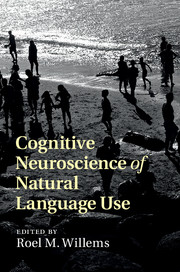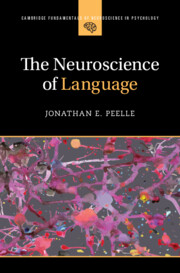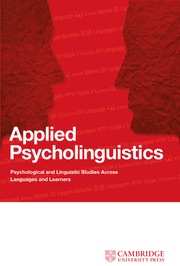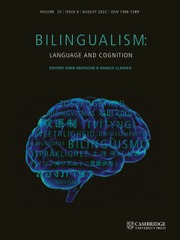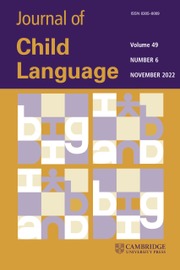Cognitive Neuroscience of Natural Language Use
When we think of everyday language use, the first things that come to mind include colloquial conversations, reading and writing e-mails, sending text messages or reading a book. But can we study the brain basis of language as we use it in our daily lives? As a topic of study, the cognitive neuroscience of language is far removed from these language-in-use examples. However, recent developments in research and technology have made studying the neural underpinnings of naturally occurring language much more feasible. In this book, a range of international experts provide a state-of-the-art overview of current approaches to making the cognitive neuroscience of language more 'natural' and closer to language use as it occurs in real life. The chapters explore topics including discourse comprehension, the study of dialogue, literature comprehension and the insights gained from looking at natural speech in neuropsychology.
- Explains the study of the neural basis of natural language and gives a state-of-the-art overview of this rapidly developing area of research
- Combines neuroscience with the study of natural language to provide a unique interdisciplinary approach
- Renowned international contributors offer fresh insights into the current state of the field and future areas of development
Reviews & endorsements
'Pointing toward a bright, exciting, and socially relevant future for neurolinguistics, this star-studded collection of essays demonstrates that researchers need not confine themselves to rigidly controlled experiments involving sterile stimuli, but can instead employ a wide range of techniques to investigate how our brains subserve the richness of real-world language use.' David Kemmerer, Purdue University
'This collection of essays may be of great value for the linguist looking for an introduction to state-of-the-art recent developments in methodology. Certainly, however, it is of great value to the researcher studying literary language in terms of empirical aesthetics and neuro-aesthetics. Though a complete lay person will find some of the material presented not easy to follow, the articles are written for a wider scientific audience than just the specialist. This stylistic attitude and, perhaps, didactic intention give testimony of the spirit governing the methodological movement of merging traditions of control and ecology.' Pascal Nicklas, Scientific Study of Literature
Product details
February 2015Hardback
9781107042018
304 pages
229 × 152 × 17 mm
0.61kg
6 b/w illus. 20 colour illus. 2 tables
Available
Table of Contents
- 1. Cognitive neuroscience of natural language use: introduction Roel M. Willems
- 2. fMRI methods for studying the neurobiology of language under naturalistic conditions Michael Andric and Steven L. Small
- 3. Why study connected speech production? Sharon Ash and Murray Grossman
- 4. Situation models in naturalistic comprehension Christopher A. Kurby and Jeffrey M. Zacks
- 5. Language comprehension in rich non-linguistic contexts: combining eye tracking and event related brain potentials Pia Knoeferle
- 6. The NOLB model. A model of the natural organization of language and the brain Jeremy I. Skipper
- 7. Towards a neurocognitive poetics model of literary reading Arthur M. Jacobs
- 8. Putting Broca's region into context - fMRI evidence for a role in predictive language processing Line Burholt Kristensen and Mikkel Wallentin
- 9. Towards a multi-brain perspective on communication in dialogue Anna K. Kuhlen, Carsten Allefeld, Silke Anders and John-Dylan Haynes
- 10. On the generation of shared symbols Arjen Stolk, Mark Blokpoel, Iris van Rooij and Ivan Toni
- 11. What are naturalistic comprehension paradigms teaching us about language? Uri Hasson and Giovanna Egidi.

